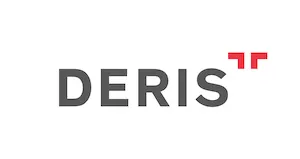Legislation
The Turkish Procedural Law No: 6100 in force since October 01, 2011 introduced a new procedure enabling the parties to submit private expert reports to the court action. Another important development was to introduce the cross examination procedure to in respect of the expert examination in the civil litigation.
Article 293 stipulates that parties may obtain and submit as evidence, scientific private reports from an expert in the field of the matter subject to the court action. The Court, upon the request of the parties or on its own discretion, may decide to hear the private expert who prepared the report and may set a hearing to this effect. Necessary questions may be directed to the private expert in this hearing. The expert report shall not be taken into consideration, should the private expert fail to attend this hearing.
Article 152 of the Procedural Law further stipulates the method of the questioning of private experts, witnesses and other third parties during the hearing. Accordingly, attorneys can direct questions to private experts who attended the hearing in line with the disciplinary requirements of the court. On the other hand, parties who are not represented by an attorney or who are present at the hearing together with their attorney can direct questions only through the Judge. Objections by parties to the questions directed to the experts are evaluated by the Judge. The refusal, acceptance of objections are under the Judge's own discretion.
Practice in Patent Litigation
The Patent litigation matters are heard before Specialized IP Courts in the first 3 biggest cities in Turkey namely, Istanbul, Ankara and Izmir. As the Judges in charge at Specialized IP Courts do not have a technical background the expert reports become essential in patent litigation. The Court as a general practice obtains reports concerning the infringement, invalidity claims as well as compensation claims from the Court appointed experts during the trial. The parties submit their own private experts reports to enlighten the technical aspect of the dispute in addition to the reports of the Court appointed experts.
The private expert report helps to clarify the subject matter and the technical details of the invention. On the other hand, parties are able to submit objections against these private experts reports and/or these reports may be contradictory to the report prepared by the court appointed experts.
Given the number of the experts reports cross examination becomes vital in patent litigation in order to allow the Court to have a grasp on the matter. Therefore, the Judge may decide to hold a hearing to hear the private expert and the court appointed experts upon the request of the parties. In addition, parties may request the court's consent for the attendance of their private or in-house technical experts to the hearing.
The court renders an interim decision notifying the parties of the date of the hearing and its consent to the attendance of the parties' technical experts, should the court accept the request of the parties.
It is also possible that the court requests the parties to submit a list of their questions to be directed to the court appointed experts and the private experts before the hearing.
As set forth in Article 152, attorneys of the parties are able to direct their questions to the court appointed experts and the private expert whereas questions to be asked by the parties' technical experts are directed through the Judge. Objections to the directed questions are evaluated and accepted or rejected by the Judge.
In view of the above, it is possible to say that the private expert report and the cross examination hearing enable the Judge to understand the technical details of the patent litigation who does not have a technical background. Besides the reluctance of some Judges in scheduling the cross examination hearings, there have been good examples of such examination in patent litigation which encourage the parties to ask the implementation of such procedure in complex patent disputes.
The content of this article is intended to provide a general guide to the subject matter. Specialist advice should be sought about your specific circumstances.


